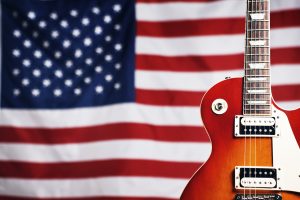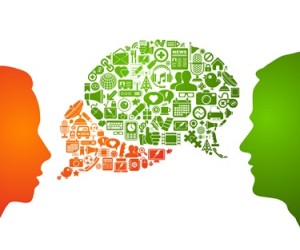In this week’s News of Note, Disney and Universal target alleged copyright infringement, OpenAI and Mattel team up to bring artificial intelligence to toymaking and China launches its production of the world’s first non-binary AI chip. Elsewhere, Nvidia announces its major expansion into Europe with its first industrial AI Cloud.
Articles Posted in Copyright
Taylor’s Version: A “Mastermind” in IP Ownership
After years of contractual entanglements, public disputes and strategic reinvention, Taylor Swift has achieved something few global recording artists have: She now owns the master recordings of her entire musical catalog.
Strange Bedfellows on the Campaign Trail: The Tension between Music, Copyright and Political Licensing Agreements
 Moments before former President Donald Trump took to the stage at a Montana rally this August, Celine Dion’s 1997 hit, “My Heart Will Go On,” blasted over the speakers while a clip appeared onscreen. It took less than 24 hours for the five-time Grammy winner’s team and Sony Music Entertainment Canada to issue a statement on social media saying that “in no way is this use authorized, and Celine Dion does not endorse this or any similar use.” Amid a heated political season, it’s not unusual for candidates to clash with the artists whose music they promulgate on the campaign trail. In Trump’s case, though, using a video compounded the legal complications. While political licensing for music typically needs approval from the recording artist, video playback requires approval from both the artist and composer. In theory, this fact would make it less risky for campaigners to stick with audio-only soundbites of their favorite crowd-pumping tunes. However, there are still questions around general music licensing dos and don’ts when it comes to politics, even as performing rights groups work to clarify things. For now, the intersection of artists’ rights and political campaigns remains a murky legal crossroads, at best.
Moments before former President Donald Trump took to the stage at a Montana rally this August, Celine Dion’s 1997 hit, “My Heart Will Go On,” blasted over the speakers while a clip appeared onscreen. It took less than 24 hours for the five-time Grammy winner’s team and Sony Music Entertainment Canada to issue a statement on social media saying that “in no way is this use authorized, and Celine Dion does not endorse this or any similar use.” Amid a heated political season, it’s not unusual for candidates to clash with the artists whose music they promulgate on the campaign trail. In Trump’s case, though, using a video compounded the legal complications. While political licensing for music typically needs approval from the recording artist, video playback requires approval from both the artist and composer. In theory, this fact would make it less risky for campaigners to stick with audio-only soundbites of their favorite crowd-pumping tunes. However, there are still questions around general music licensing dos and don’ts when it comes to politics, even as performing rights groups work to clarify things. For now, the intersection of artists’ rights and political campaigns remains a murky legal crossroads, at best.
Discovery Dilemma: An Update on the Legal Battle Between The New York Times and OpenAI
OpenAI’s defense of the lawsuit brought by The New York Times (“The Times”) has sparked controversy relating to OpenAI’s discovery demand for access to reporter notes and other behind-the-scenes materials associated with millions of articles that appeared in The Times.
Colleagues Jennifer Altman, Shani Rivaux and Macarena Fink provide a briefing on OpenAI’s discovery request in their recently published client alert, “Discovery Dilemma: An Update on the Legal Battle Between The New York Times and OpenAI.”
California’s Shift to Kaplan for Bar Exam Questions Sparks Copyright Debate
Facing potential insolvency by 2026, the State Bar of California is exploring various cost-saving measures, including remote administration and the use of small vendor-owned test centers for its exams. As part of this process, the Bar issued a Request for Information back in January 2024 to find a vendor capable of developing multiple-choice questions equivalent to the current Multistate Bar Examination (MBE)—with Kaplan North America, LLC (Kaplan) being proposed as a potential new vendor for next year’s February 2025 exam. However, the Bar’s Board of Trustees subsequently pulled the proposal from discussion at a May 16, 2024, meeting following a warning letter from the National Conference of Bar Examiners (NCBE) to Kaplan, in which the NCBE set forth its position that the MBE materials licensed to Kaplan, which include hundreds of actual, retired MBE questions, should not be used to create new multiple-choice questions for any jurisdiction.
Legal Riffs: Music Industry Alleges AI Is Out of Tune
In late June, Universal Music Group (UMG) Records, Sony Music Entertainment, and other major record labels filed two complaints against two generative artificial intelligence (“gen AI”) music startups, Suno, Inc. (Suno) and Uncharted Labs, Inc. (Udio). The concurrently filed complaints allege that the gen AI technology produced by Suno and Udio directly infringes on copyrights owned by these record labels.
Colleagues Shani Rivaux, Macarena Fink and Catherine Perez provide a briefing on these complaints in their recently published client alert, “Legal Riffs: Music Industry Alleges AI Is Out of Tune.”
Supreme Court Confirms Copyright Damages Can Extend Beyond Three-Year Statute of Limitations
In a landmark decision, the U.S. Supreme Court confirmed that “[t]he Copyright Act entitles a copyright owner to obtain monetary relief for any timely infringement claim, no matter when the infringement occurred.” See Warner Chappell Music Inc. et al. v. Sherman Nealy et al., Case No. 22-1078 (May 9, 2024). The three-year statute of limitations in the Copyright Act does not bar copyright owners from recovering damages for infringement occurring more than three years ago if the lawsuit is filed within three years of discovering the infringement.
After Jack Daniel’s, the Other Shoe Drops for MSCHF in Wavy Baby Trademark Case
On December 5, 2023, the U.S. Court of Appeals for the Second Circuit affirmed a temporary restraining order and preliminary injunction secured by skateboard apparel company Vans against, MSCHF, an infamous parodist company. The Court found that the district court had correctly concluded that Vans was likely to succeed on its trademark infringement claims against MSCHF for its Wavy Baby sneakers, which allegedly parodied Vans’ iconic “Old Skool” sneaker design.
Stormy Weather on a Starry Night: The Copyright Office Refuses Another AI-Generated Work
On December 11, the Review Board of the U.S. Copyright Office affirmed the refusal to register yet another AI-generated work. The decision follows the Office’s refusal to register Dr. Stephen Thaler’s A Recent Entrance to Paradise (which was affirmed in federal court, reported here, and is on appeal to the U.S. Court of Appeals for the District of Columbia), Kris Kashtanova’s Zarya of the Dawn (reported here), and Jason Michael Allen’s Théâtre D’opéra Spatial.
Stand-Alone AI-Generated Content Is Not Copyrightable
On August 18, 2023, the U.S. District Court for the District of Columbia denied Dr. Stephen Thaler’s motion and granted the U.S. Copyright Office’s cross motion to dismiss Thaler’s complaint. The facts of Thaler’s struggle to overcome the Copyright Office’s Human Authorship Requirement and register copyright in an AI-generated work are recounted here.
 Internet & Social Media Law Blog
Internet & Social Media Law Blog



